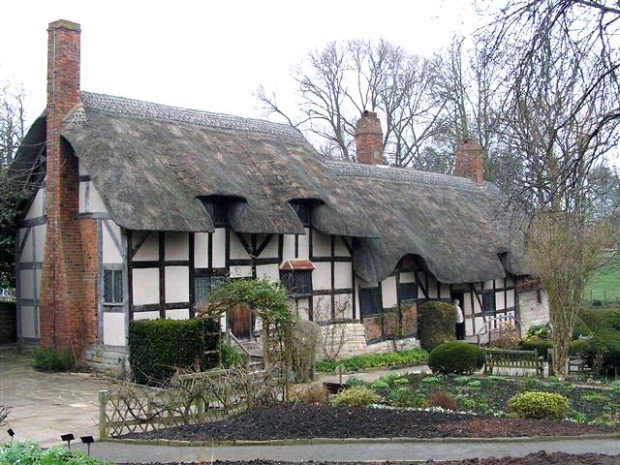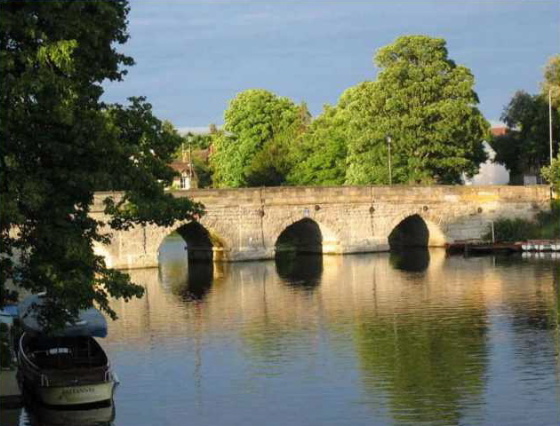
Fear no more the heat o' the sun,
Nor the furious winter's rages;
Thou thy worldly task hast done,
Home art gone, and ta'en thy wages;
Golden lads and girls all must,
As chimney-sweepers, come to dust.
Fear no more the frown o' the great;
Thou art past the tyrant's stroke:
Care no more to clothe and eat;
To thee the reed is as the oak:
The sceptre, learning, physic, must
All follow this, and come to dust.
Fear no more the lightning-flash,
Nor the all-dreaded thunder-stone;
Fear not slander, censure rash;
Thou hast finished joy and moan;
All lovers young, all lovers must
Consign to thee, and come to dust.
No exorciser harm thee!
Nor no witchcraft charm thee!
Ghost unlaid forbear thee!
Nothing ill come near thee!
Quiet consummation have;
And renownéd be thy grave!
I've always loved this song, from Cymbeline, one of Shakespeare's late plays, especially this couplet:
Golden lads and girls all must,
As chimney-sweepers, come to dust.
It's so
Shakespeare — speaking of the gravest things in the lightest and most
lilting way. I can't help but see it as a reflection of the
country humor Shakespeare grew up with, when hard things, all too
familiar, needed to be tossed off carelessly at times — sort of like
the phrase “he bought the farm.”

At any rate, the tone echoed through English literature — A. E. Housman derived a whole oeuvre from it, as in the following:
With rue my heart is laden
For golden friends I had,
For many a rose-lipped maiden
And many a lightfoot lad.
By brooks too broad for leaping
The lightfoot boys are laid,
The rose-lipped girls are sleeping
In fields where roses fade.

I also love the image in this couplet from Shakespeare's song:
Thou thy worldly task hast done,
Home art gone, and ta'en thy wages . . .
Though
Shakespeare became a wealthy man and a speculator later in his life, he
never got too far, imaginatively, from his working-class roots.
Life to him was always a job of work, literally and
metaphorically. He died soon after giving up his trade as a
playwright — in his heart, I suspect, the end of work and the end of
life were more or less the same thing, as they were for most English country folk of the time.
It took me a while to realize where the image in the couplet above
comes from, specifically — Saint Paul's letter to the Romans, where
the apostle writes, “The wages of sin is death.”
Saint Paul didn't exactly mean that death was a punishment for sin,
or that if you lived a sinless life you could escape death, because no one can live a sinless life. He
was just making a general observation, as Shakespeare was, about the
condition of man, imperfect by nature, doomed to die. When you
take your last wages in this world, all you can buy with them is the
farm.
